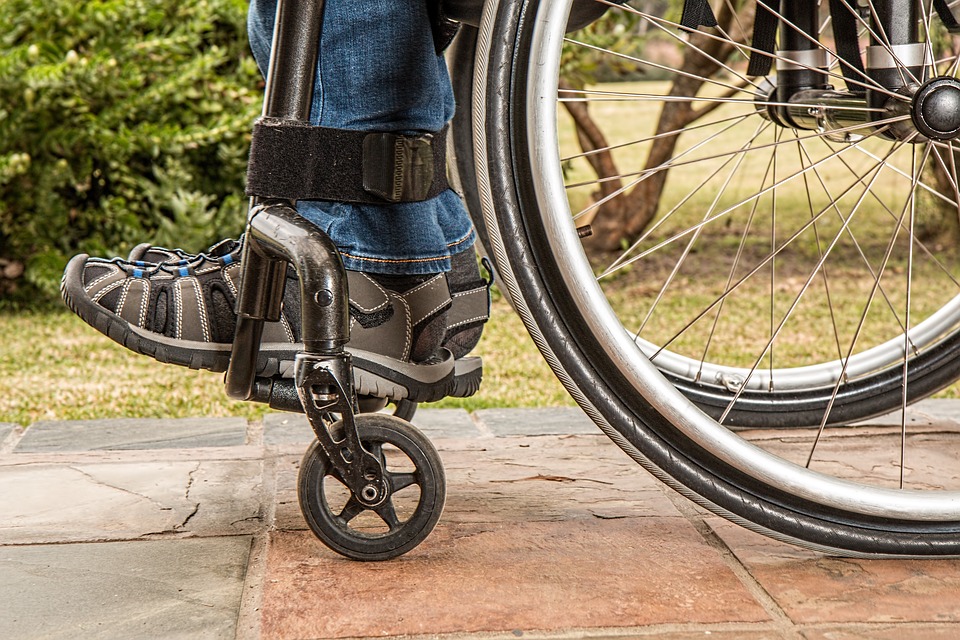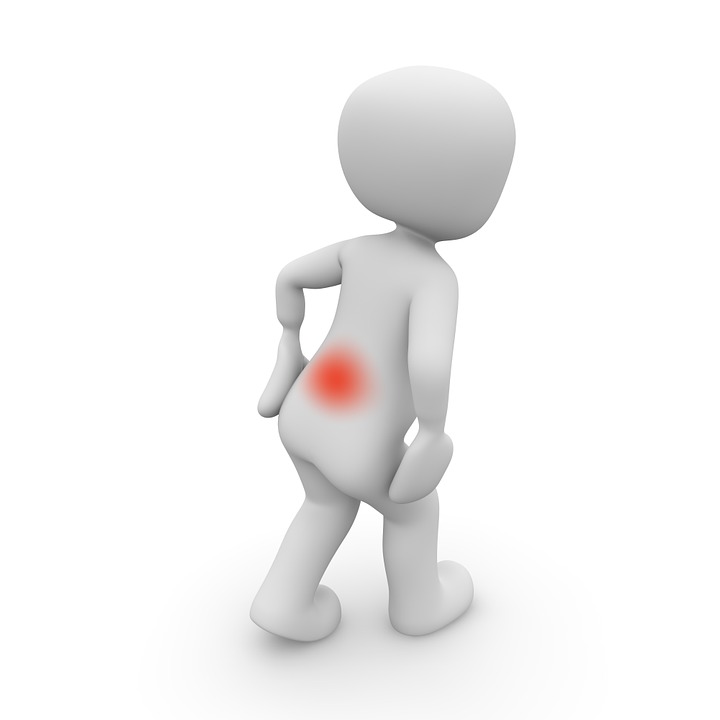Britain is a nation that prefers to ignore what it doesn’t like. And it doesn’t like disability. We live in a society where people believe a number of erroneous things, on one level or another.
We believe we’ll never be disabled
First of all, we all think we won’t become disabled. I know I did. For a start, young people are known to believe they are invincible. And we think we’ll never be the 0.1% or the 1% or even the 10%: it’ll be someone else. We don’t, in general, make any kind of preparation, such as taking out income protection insurance, which provides you with a monthly income if you become too ill to work and your sick pay runs out. I’d never heard of this until recently, and once you have a condition of some severity, forget it, they’re not insuring you.
We also don’t really care about how rubbish government disability provision is. When I say ‘we’, I mean most people who haven’t had much contact with disability. If we did care, there’d be more fuss about how little the government provides, how difficult it is to access any provision, and how humiliating the process can be. There’d be more fuss about how the many of disabled people live in poverty [1], and how difficult it is to access the workplace, and how rubbish public transport can be. And so on.
There’s also a pervasive view that medicine can fix almost anything. People frequently seem surprised that doctors weren’t able to resolve my health problems.
We believe disabled people deserve lesser treatment
A wild claim? Is it really though? I think secretly a lot of people think that disability is often someone’s fault. Some of a hippy inclination think it’s all a matter of mindset. Others think a good diet (whatever their definition of that is) will solve everything. Others may even blame parents for bringing a disabled child into the world. And even those who think none of these things may think disabled people shouldn’t have access to affordable transport options and carers, at the taxpayers expense.
Having become a disabled person in my 20s, it sometimes amazes me how little people are sometimes prepared to do to adapt. For example, my local Abel and Cole delivery man was visibly not at all keen on taking the boxes of food to the kitchen, even though it only took up a minute of this time: maybe less. One day he just didn’t knock and left it all outside, despite knowing I’m disabled. I’m not alone in this: in one poll, 28% of respondents, all of whom were disabled, had experienced people refusing to make adjustments [2].

The world often feels pretty unfriendly to disabled people. So many things could easily be adapted to our needs, but aren’t.
We see disability as black and white
People generally accept that someone who can’t walk at all is disabled. But shades of grey confuse them. Almost half of disabled people taking part in a poll said they had talked to someone who didn’t believe they were disabled [3]. A friend once told me that if people saw me getting out of my wheelchair and walking (which I frequently do) they’d think I was ‘an actress’. No doubt some think I’m some kind of benefit fraudster, so beloved is this conception (largely a myth: there are hardly any) [4]. Fact is, I can only walk 15-25 minutes a day without getting so much pain later that I can’t sleep. You can’t get far with 15 minutes, or indeed 25, so sometimes I use a wheelchair or mobility scooter. But the fact that when I walk, I do so completely normally really fries people’s minds. As someone once said to me, ‘It’s hard to believe you need a wheelchair when you get out and walk normally’.
Invisible illness is, in general, difficult for people to take in. This is compounded by our obsession with ‘fakers’. From teachers at school to bosses at work, anyone and everyone is liable to being labelled a faker when they take a sick day. Yes, people do fake sick days. But when you haven’t been faking, and you get treated like you have, it really sucks. You are expected to look and sound awful to ‘prove’ your illness.
I often hear the same sort of problem arising with people whose disability involves exhaustion. People see them weeding their garden and think they’ve recovered.
These perceptions raise dilemmas for the disabled person. I often wonder if I should try to look like I’m having more difficulty walking. I know someone who can only speak a short time before pain sets in. She sometimes doesn’t speak at all, using technology instead, rather than speak a little and then use the app, because people are less confused that way. One disabled person jokes about shouting ‘it’s a miracle!’ when she gets out of her wheelchair to get into her car, again highlighting how strange people tend to find intermittent wheelchair use [4].
Those with M.E. often seem to have the most problems with black-and-white thinking, as some can have patches where they’re fine, then be really ill for a while, and people sometimes think things like ‘well, if you just rest up before our dinner date, you won’t need to cancel’, which might not be the case.

We think it’s ok to phase out the disabled people in our lives
Since becoming part of online support groups for the chronically ill, I’ve discovered that chronic ill health is very often accompanied by isolation. We often see on social media ‘inspirational quotes’ like ‘cut out the negative people in your life; find those who energise and inspire you’. I fully understand cutting out an abusive, unsupportive friend, but these days many people will happily leave by the wayside anyone who’s inconvenient to meet up with or anyone who’s feeling depressed. Even an otherwise wonderful guy I dated at uni didn’t want to hang out with the disabled guy on his course. I’ve heard many a story from the chronically ill of friends just ‘disappearing’, stories that have brought tears to my eyes.
Why do people do it? Surely it must link in with what I said earlier about how we believe it will never be us in that position, and how we believe, perhaps only on a subconscious level, that it is somehow their fault. I am not completely immune to this myself, but I catch myself and think ‘come on, this is ridiculous!’
Many of the chronically ill suspect some friends disappeared because they are uncomfortable with the idea it could happen to them. I think this must happen, just as it does with elderly people. We want to be around happy, shiny people in a bright, perfect world, just like in the adverts. Many people will admit they fear death and so ‘just don’t think about it’, and I suspect much the same attitude is taken to disability. It’s a bit like avoiding hospitals. This is backed up by research which has found that 26% of non-disabled people tend to think of disabled people with awkwardness and discomfort. [5]
The reality is uncomfortable, but we urgently need to face up to it so we can be there for our disabled relatives, friends, employees, colleagues and neighbours.
Learning to live with a physical or mental impediment is hard enough as it is.

Related links:
UK government-commissioned surveys into attitudes to disabled people
https://www.gov.uk/government/uploads/system/uploads/attachment_data/file/325989/ppdp.pdf
——
Articles on politicians ignoring disabled people:
http://www.disabilityrightsuk.org/news/2013/october/govt-ignores-disabled-people-over-pip
—–
Ignoring disability in international development plans:
—–
Ignoring abuse of disabled people:
http://www.bbc.co.uk/news/uk-wales-21674047
—-
Ignoring disability links with incarceration and the needs of disabled prisoners:
https://themighty.com/2016/09/we-cant-ignore-the-link-between-disability-and-mass-incarceration/
http://www.miamiherald.com/news/state/florida/article56734053.html
——–
Uk politicians: some raising disability issues, others ignoring them:
———
On businesses ignoring disability:
http://www.huffingtonpost.co.uk/sophie-morgan/disabled-accessibility_b_6840528.html
References
[1] 30% of working age disabled people live in poverty according to Scope http://www.scope.org.uk/media/disability-facts-figures
[2] & [3] Polls commissioned by Scope and carried out by Opinium http://www.scope.org.uk/Scope/media/Images/Publication%20Directory/Current-attitudes-towards-disabled-people.pdf?ext=.pdf
[5] http://www.scope.org.uk/media/disability-facts-figures









